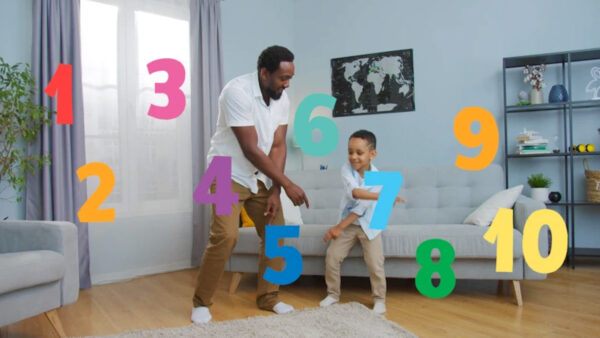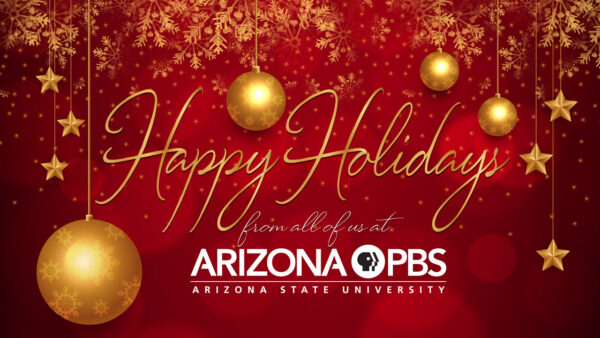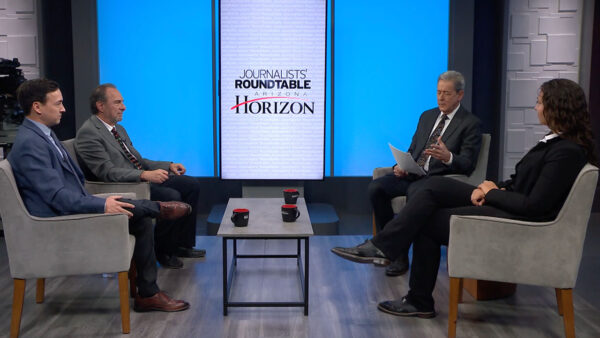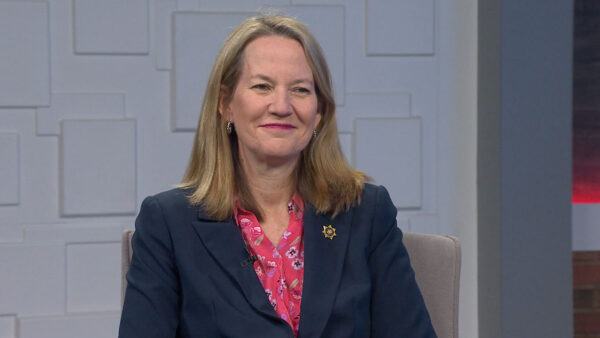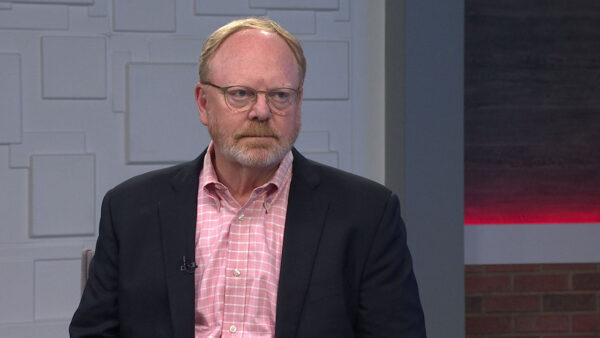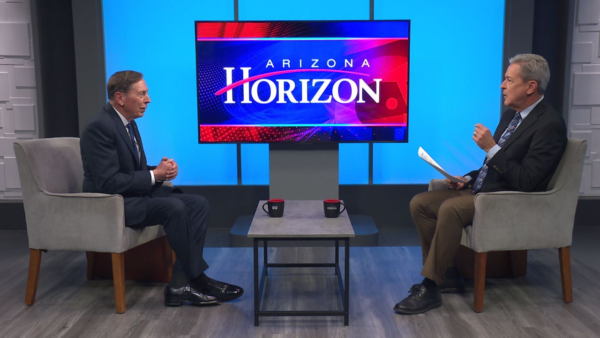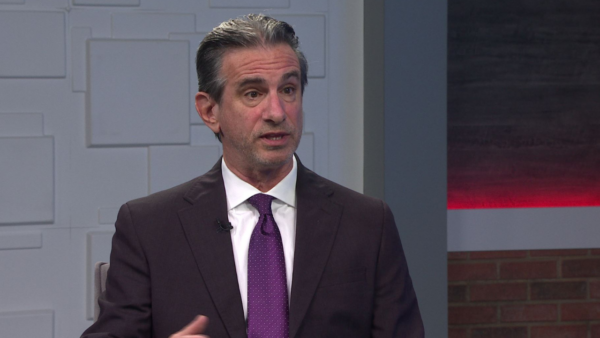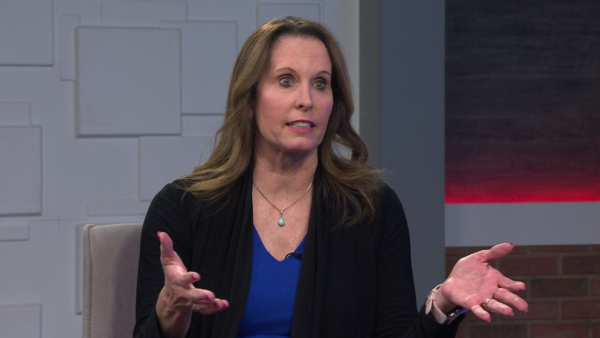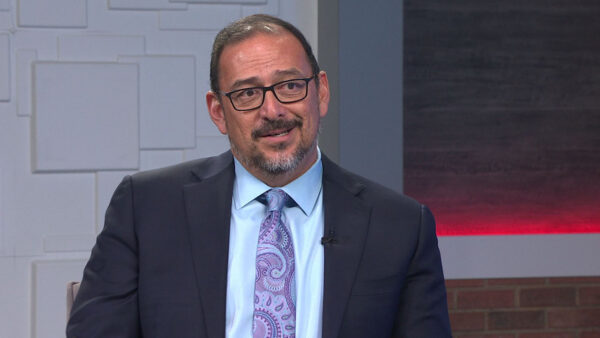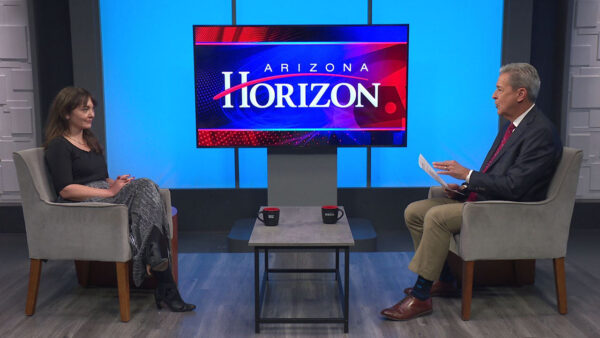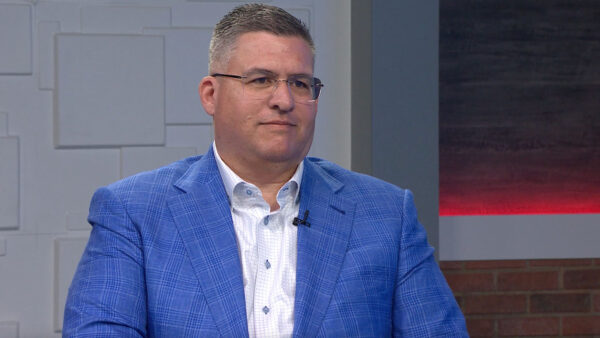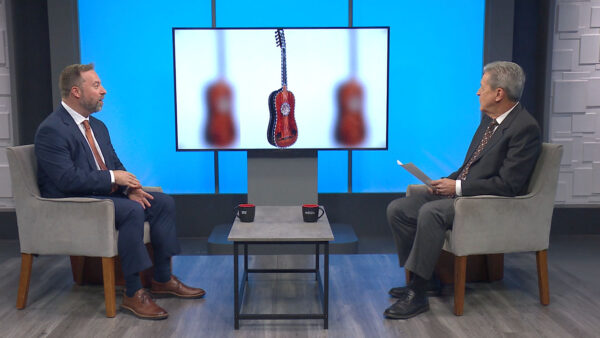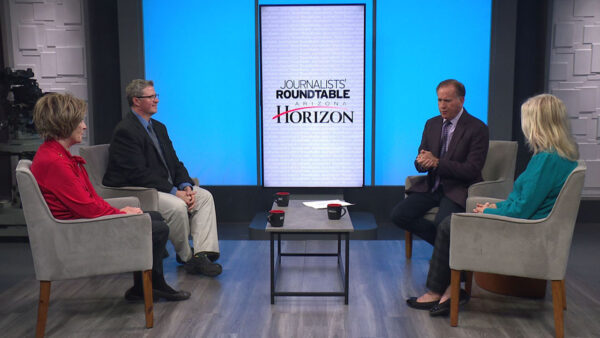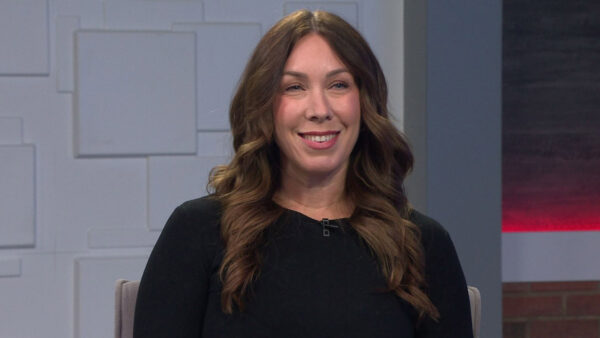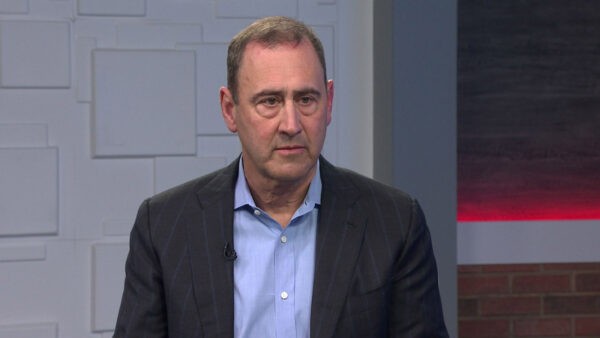Phoenix voters will get a chance to vote on a 35-year transportation plan for the city. Marty Shultz, vice-chair of the Citizens Committee on the Future of Phoenix Transportation will fill us in on the details.
Christina Estes: Coming up next on "Arizona Horizon," get the nuts and bolts of Phoenix's 35-year transportation plan. We'll take a look at some photos from a new book that features one hundred years of Arizona at work. And we'll check out the new digs for a local art gallery that's known around the world. Those stories next on "Arizona Horizon."
Video: "Arizona Horizon" is made possible by contributions from the Friends of Eight, members of your Arizona PBS station. Thank you.
Christina Estes: Good evening and welcome to Arizona Horizon. I'm Christina Estes in for Ted Simons. The Phoenix city council has given the green light for a 35-year transportation plan that would cost more than $30 billion. But their green light only goes so far. It will be up to voters to approve a tax to expand light-rail and bus service, and cover road improvements. Here to tell us more about the plan is Marty Shultz, vice-chair of the Citizens Committee on the Future of Phoenix Transportation. That's a mouthful.
Marty Shultz: That is a mouthful.
Christina Estes: You have a big job. Before we talk about the future and this potential tax that voters will address in August, can we talk about the current situation? We already have in Phoenix a tax that deals with transit or transportation issues. How much is that and when does that run out?
Marty Shultz: So in 2000, in the year 2000, turn of the century, if you will, the voters in Phoenix approved a 4/10 of 1 cent tax and that was designed to build the current transportation system, specifically light rail, expand the bus system and do some street improvements. And that's coming along, even though there has been a shortfall because of the great recession. It's making progress. But it expires in 2020.
Christina Estes: So based on the committee's research, as well city council, the transit 2000 tax generated a billion dollars less in revenue than originally anticipated. The city officials say we already don't have the billion dollars we expected, plus there is more we would like to do so they called on the 34 member committee, tell us about that. What were you tasked with doing?
Marty Shultz: It wasn't a matter of what they would like to do but what we need to do because everyone knows that transportation drives the economy and Phoenix alone is proposed or at least is estimated to be increasing by 45%. Plus, the fact is light rail has been such a huge success in terms of its encouragement for investment. There has been $7 billion worth of investment just adjacent to the light rail since its inception in 2000. It's very clear that transportation drives the economy and the council was visionary enough to establish the committee. We did a lot of work, we had over 100 different meetings and public hearings. We worked since August with all the data, with all the financial activities, we had a big input, if you will, session through social media. And in many meetings around the city, including every city council district, in order to get the public's input to come up with our recommendations.
Christina Estes: What did you hear from the public? What were the big items for them?
Marty Shultz: Interestingly enough the public was very interested in the expansion of light rail, the expansion of the bus system in terms of service, frequency of service and that kind of thing and street improvements. We listened to them and these recommendations that have gone to the city council, that are going to the voters in August are very responsive to that. Sure it's a long-term program and the increase in the sales tax in Phoenix is less than a penny, it's three quarters of a cent. In fact, it's less than three quarters of a cent. It's technically 0.7. That will be the tax going forward but what it will generate in terms of billions of dollars, it sounds like, you know, a lot of money but these pennies add up and over a period of 30 years, we'll be able to build the world-class transportation system that Phoenix not only deserves I say that as a sort of a booster but is absolutely necessarily to continue to drive the committee.
Christina Estes: So let's be clear about the tax that we're talking about. We have a current 4/10 of 1 cent tax that expires in 2020. The committee would like to see what?
Marty Shultz: We would like to see starting in 2016 that that tax be increased .3, that's 3/10 of a cent for a total of 0.7 and that continued through 2050.
Christina Estes: So that's just under a penny a dollar, about 70 cents for $100. How long would this last?
Marty Shultz: For 35 years.
Christina Estes: And some might think it's going to be a tough sell. We'll hear about that down the road. What's the sales pitch? What is this money going to buy the public?
Christina Estes: The sales pitch, if you will, is what Phoenix residents and frankly, people in the valley understand already, even though this is a choice by Phoenix residents online. The pitch is real simple. If you believe that Phoenix is going to continue to grow, I've been here since 1953, I've lived it. Anybody who's been here in the last 10 years has lived it and frankly, in the next 30 years, by 2040, Phoenix will grow by 45% and be over 2.2 million people. That's just Phoenix alone. So as we get, you know, moving in terms of this new growth spurt, as we get potential congestion in transportation, people understand that alternatives to the car are necessary. People may choose to still ride in their car on freeways and major streets and we're improving and overlaying major streets so there's a complete streets program but in the end, there are hundreds of thousands of people that actually take the buses or light rail. Students, people who go to work, and this expands that system and drives the economy. To prove it drives our economy as I mentioned before, the investment in construction, the investment in economic activity has led to a $7 billion number and that's just today from 2000. We're very excited about the future.
Christina Estes: Again, final decision will likely be up to voters in Phoenix, coming up in August, the city council's got to set that firm date but that what it's looking like right now, we'll hear more about this. Thank you so much for your time, we greatly appreciate it.
Marty Shultz: Glad to be here.
Marty Shultz:Vice-Chair, Citizens Committee on the Future of Phoenix Transportation;
